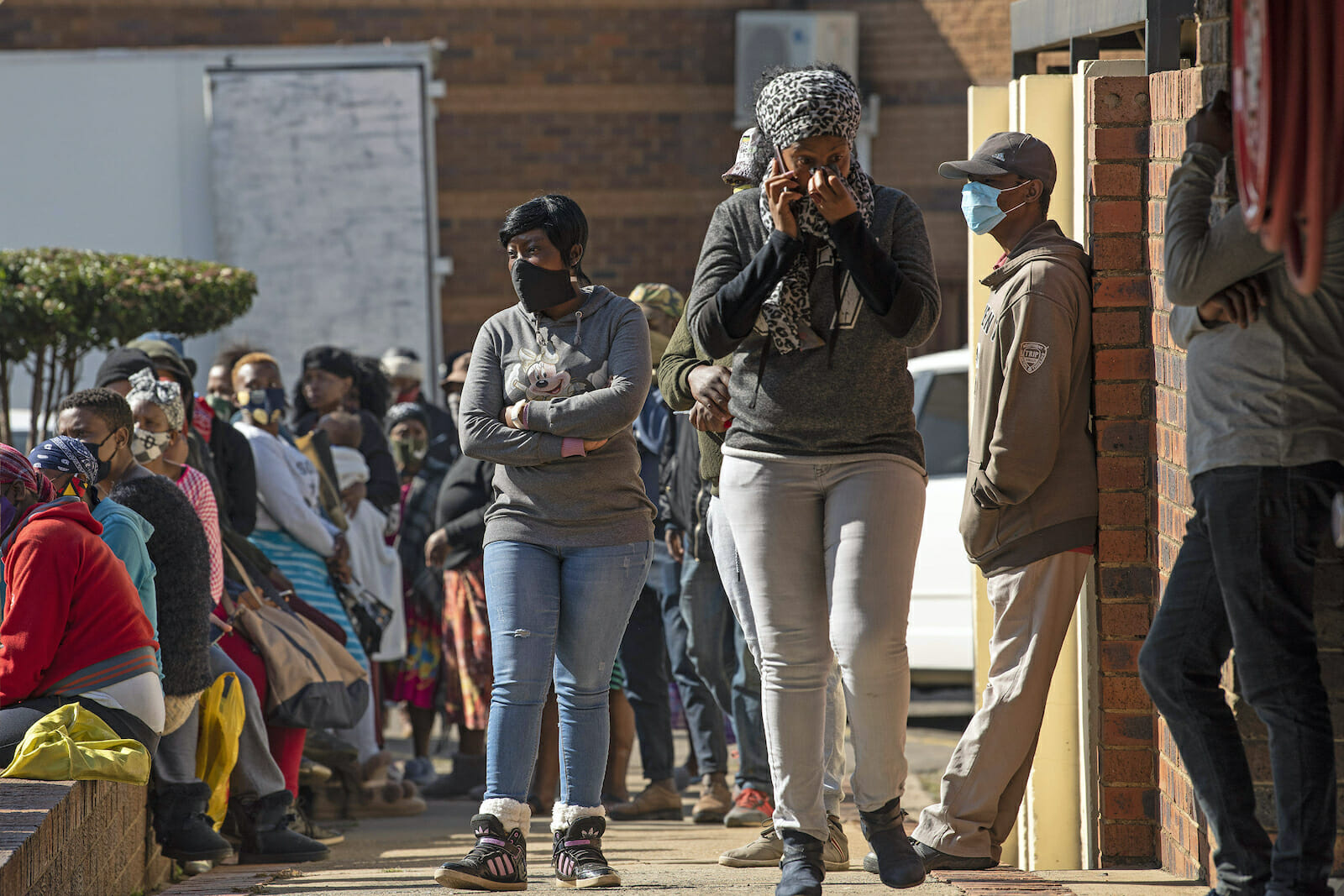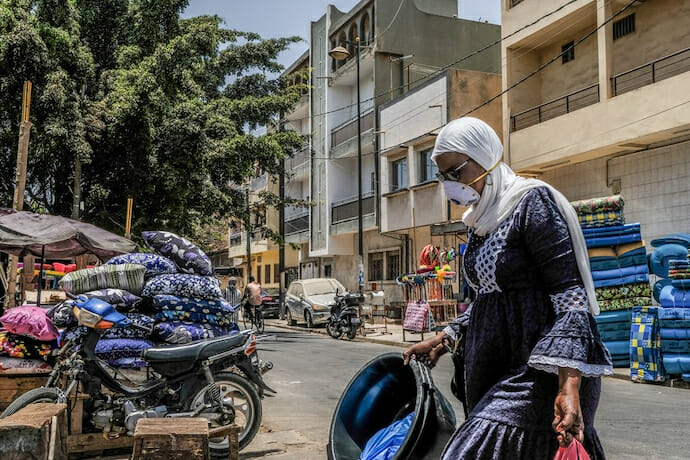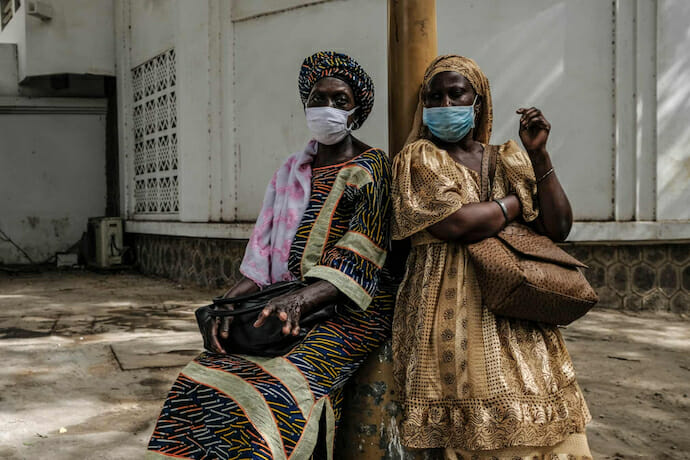
Regardless of Motive, China is Provided Aid to an Unvaccinated Africa
The pandemic has dramatically unveiled the shortcomings in the implementation of a global health strategy in the developing world. Africa, for example, has only received about 2% of all vaccines administered globally. Throughout Africa, only 4 vaccines per 100 people have been delivered, compared to 70 vaccines per 100 people in Europe.
In South Africa, which has the continent’s most robust economy and the largest number of infections, just 0.8% of the population has been fully vaccinated. In Nigeria, Africa’s biggest country with more than 200 million people, only 0.1% are fully vaccinated. And, according to the WHO, vaccine shipments to the continent have ground to a “near halt.”
The United States and other developed countries, who have been hoarding vaccine doses, have recently started offering booster and/or shots to their youngest populations while the African continent is currently battling its own third wave of infections.

The African Union special envoy blasted COVAX which had promised to deliver 700 million vaccine doses to Africa by December. So far, Africa has received just 65 million doses overall with less than 50 million doses via COVAX. The continent had purchased 400 million vaccine doses and is still waiting to receive these because the Serum Institute of India, the major COVAX supplier, diverted production for domestic use within India.
The European Medicines Agency, for example, is being criticised for not approving Covishield, placing Africans at a unique disadvantage from traveling to some countries within the EU after Green Pass, a digital vaccine certificate, rolled out in July.
The African Union Commission and the Africa Centres for Disease Control and Prevention have expressed concern over the latest EU decision. Covishield is currently the most widely used COVID vaccine (more than 90%) in Africa and is the backbone of the COVAX facility, which has been spearheaded by the World Health Organization and is supported by donors, including the EU.
Ahead of the G7 summit in June, President Joe Biden announced that the United States would buy 500 million more doses of the Pfizer vaccine that will be donated through the COVAX program to 92 lower-income countries and the African Union over the next year. The continued proliferation of aid from wealthy nations should help, in theory, to increase the rate of vaccinations in Africa.
Meanwhile, China has provided 27 million doses to 40 African countries, out of the 55 million doses pledged. The vaccines were donated or sold at “favorable prices.” The pace of these deals has picked up. Even so, the total number of vaccines delivered to Africa by China has remained rather low when compared to Latin America and the Asia-Pacific region.
Historically, China’s healthcare diplomacy has been driven by its belief that supporting the healthcare capacity of African countries helps boost economic development and maintain stability. China’s strategy also emphasizes the importance of health financing, planning, preparedness and emergency response to epidemics and transformation of African health information systems currently lead by Huawei.

During the Johannesburg Summit which followed the first Forum on China-Africa Cooperation in 2006, China pledged to provide $60 billion of funding support for ten major China-Africa cooperation plans to be implemented in health-related areas. Examples of Chinese healthcare-related initiatives in Africa are numerous. In 2006, the Chinese government established the China-Africa Development Fund, with funding of around $1 billion from the China Development Bank. Over the past decade, China assisted Africa through the Global Fund to Fight AIDS, Tuberculosis and Malaria, and it helped West African countries fight Ebola which caused a net loss of $6.2 billion in GDP in the three most affected countries: Liberia, Sierra Leone, and Guinea.
China’s efforts to support Africa in the fight against infectious diseases included the construction of regional and community hospitals and treatment centres, infrastructures, and facilities, and it provided coaching and mentoring by Chinese medical care delivery teams in over a dozen countries.
This begs the question: is China using the current shortage of COVID vaccines as a soft-power move to further its political and economic interests in Africa, or is China the catalyst of a prosperous future in Africa? For Africans seeking a COVID jab, it probably doesn’t really matter what China’s motives are.
Beyond the concepts of “solidarity” and “donations,” which have been widely used for decades throughout the post-colonial era, the lesson learnt from the pandemic is to reduce health disparities between developing and developed countries. There are at least two pillars which could be immediately leveraged to enable sufficiency and solve the issue of inequity of access to vaccines throughout Africa: industrialization and joint procurement.
An example of expansion in vaccine production is one in Egypt which started locally producing China’s Sinovac vaccine in June after Sinovac provided its Egyptian commercial partner with the license to manufacture and pack the vaccine locally. In Morocco, the same business model has been duplicated by Sinopharm, another Chinese vaccine manufacturer. Both initiatives were successfully run through public/private partnerships.
In countries with little manufacturing, filling, and packaging capabilities, the joint-procurement is expected to ease the burden off low middle-income countries, while enabling cost-sharing and yet holding the countries accountable to their respective populations on the delivery of public health solutions.
In the promising land of economic prosperity, accountability and governance are the true catalysts of a nascent democracy in Africa.

